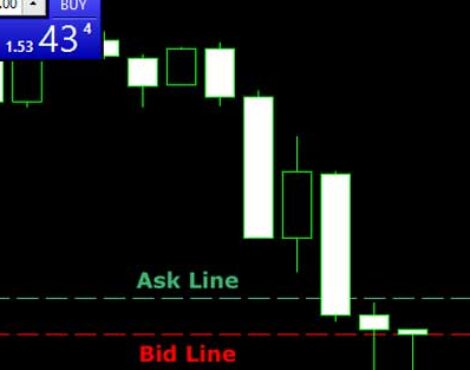Introduction: Understanding the Role of Forex Brokers

Foreign exchange trading, more commonly known as forex trading, is a popular way for individuals to trade currencies and potentially profit from market movements. One key element of forex trading is choosing a reputable forex broker to execute your trades. But with so many brokers available, how do beginners evaluate and choose the right one? This guide will help beginners understand the key factors to consider when evaluating forex brokers.
Researching Regulatory Compliance and Reputation

When evaluating forex brokers, regulatory compliance should be a top priority. Look for brokers who are regulated by reputable authorities such as the Financial Conduct Authority (FCA) in the UK or the Commodity Futures Trading Commission (CFTC) in the US. Regulatory compliance ensures that the broker operates within strict guidelines, which helps to protect your funds and ensure fair trading practices. Additionally, research the broker’s reputation by reading reviews from other traders and checking for any past regulatory actions or fines.
Assessing Trading Platforms and Tools Offered

Another important factor to consider when evaluating forex brokers is the trading platforms and tools they offer. A user-friendly and reliable trading platform is essential for executing trades effectively. Look for brokers that offer popular platforms such as MetaTrader 4 or 5, as well as mobile trading apps for trading on the go. Additionally, consider the tools and resources offered by the broker, such as technical analysis tools, market research, and educational materials.
Comparison Table
| Broker | Trading Platform | Mobile App | Technical Analysis Tools | Educational Resources |
|---|---|---|---|---|
| Broker A | MetaTrader 4 | Yes | Yes | Yes |
| Broker B | MetaTrader 5 | Yes | Yes | Yes |
| Broker C | Proprietary Platform | Yes | Yes | Limited |
Comparing Spreads, Commissions, and Fees

Spreads, commissions, and fees can have a significant impact on your trading profitability, so it’s crucial to compare these costs when evaluating forex brokers. Spreads are the difference between the buying and selling price of a currency pair, while commissions are fees charged on each trade. Some brokers may also charge additional fees for deposits, withdrawals, or inactivity. Look for brokers with competitive spreads and transparent fee structures to minimize your trading costs.
Analyzing Customer Support and Educational Resources

Good customer support can make a big difference when trading forex, especially for beginners. Look for brokers that offer responsive and helpful customer support through multiple channels such as live chat, email, and phone. Additionally, consider the educational resources provided by the broker, such as webinars, tutorials, and trading guides. A broker that offers educational resources can help you learn more about forex trading and improve your skills over time.
Conclusion: Choosing the Right Forex Broker for You

Choosing the right forex broker is a crucial decision for beginner traders, as it can impact your trading experience and profitability. By researching regulatory compliance and reputation, assessing trading platforms and tools, comparing spreads, commissions, and fees, and analyzing customer support and educational resources, beginners can make an informed decision when choosing a forex broker. Ultimately, finding a broker that meets your needs and preferences is key to successful forex trading. Take the time to evaluate different brokers and choose one that aligns with your trading goals and risk tolerance.



